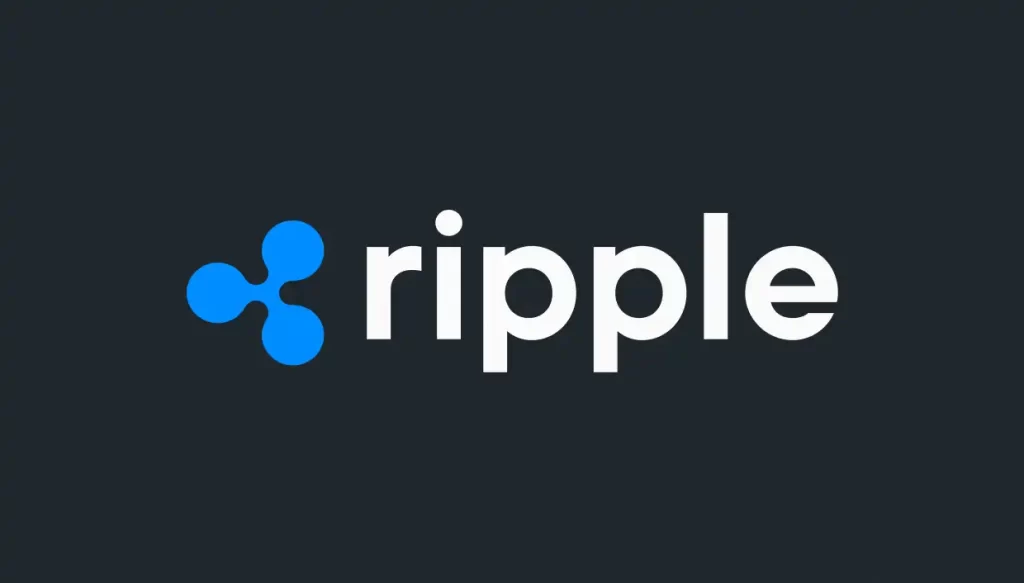Argentina’s presidential run-off election on November 19th witnessed a victory for Bitcoin-friendly candidate Javier Milei, who triumphed over his opponent Sergio Massa.
Milei secured over 55% of the votes, amassing a nearly 3-million-vote lead with almost 99% of the ballots counted, as per Bloomberg data.
In a show of sportsmanship, Massa, the incumbent minister of the economy, graciously congratulated Milei on his victory when more than 90% of the votes had been tallied, even before the official results were announced. Milei is set to assume office on December 10.
The central issue gripping Argentina throughout the election was its persistent inflation crisis, with the Argentine peso witnessing a staggering 140% annual inflation increase in the past year.
Milei has been a vocal critic of the country’s central bank, labeling it a “scam” and accusing politicians of using it to impose an “inflationary tax” on the populace.
READ MORE: OpenAI Founder Sam Altman Ousted as Turmoil Escalates, Triggering Wave of Resignations
He has also endorsed Bitcoin as a move toward “returning money to its original creator, the private sector.”
Nevertheless, Milei has not indicated any immediate plans to make Bitcoin legal tender in the country.
In stark contrast, Massa holds opposing views on money, banking, and cryptocurrencies.
In October, he pledged to introduce a central bank digital currency (CBDC) if elected, with the aim of addressing Argentina’s persistent inflation crisis.
While Massa emerged victorious in the initial round of the presidential election in October, his success was insufficient to secure the presidency outright, leading to the final run-off vote.
Javier Milei’s triumph signifies a significant shift in Argentina’s political landscape, with a leader who is outspokenly supportive of Bitcoin and skeptical of traditional banking institutions set to take the reins.
As the country grapples with its inflation woes and economic challenges, the world will be watching to see how Milei’s presidency unfolds and whether any changes in financial policy will accompany his tenure.
On November 17, decentralized exchange (DEX) dYdX found itself compelled to tap into its insurance fund, allocating $9 million to cover user liquidations.
Antonio Juliano, the founder of dYdX, has characterized these losses as a result of a “targeted attack” on the exchange.
According to information shared by the dYdX team on X (formerly known as Twitter), the v3 insurance fund was employed “to address deficiencies in liquidation processes within the YFI market.”
This move came in response to a significant drop in the Yearn.finance token, which plummeted by 43% on the same day, following a remarkable 170% surge in the preceding weeks.
This sudden and drastic price decline gave rise to concerns within the crypto community, with some speculating about a potential exit scam.
The purported attack specifically singled out long positions in YFI tokens on the dYdX platform, leading to the liquidation of positions valued at nearly $38 million.
Antonio Juliano suspects that both the trading losses experienced by dYdX and the sharp YFI decline were the consequences of market manipulation.
He stated, “This was pretty clearly a targeted attack against dYdX, including market manipulation of the entire $YFI market.
“We are investigating alongside several partners and will be transparent with what we discover.”
READ MORE:CoinShares Gains Exclusive Option to Acquire Valkyrie Funds, Eyes U.S. ETF Market Expansion
Juliano reassured users that their funds remained unaffected by the incident, emphasizing that the v3 insurance fund still retained $13.5 million.
He also pledged to conduct a comprehensive review of their risk parameters, potentially implementing changes to both v3 and the dYdX Chain software as needed.
In the aftermath of this profitable trade, the YFI token’s market capitalization suffered a staggering loss of over $300 million.
This development led to speculations within the community, with some raising concerns about the possibility of insider involvement in the YFI market.
Some users alleged that 50% of the YFI token supply was concentrated in 10 wallets controlled by developers.
However, data from Etherscan suggests that some of these wallets belong to crypto exchanges.
Despite efforts by Cointelegraph to seek comments from dYdX and Yearn.finance, neither party has responded as of yet.
The incident has brought to the forefront the challenges and vulnerabilities faced by decentralized exchanges in the cryptocurrency ecosystem.
James Wallis, the Vice President for Central Bank Engagements and Central Bank Digital Currencies (CBDCs) at Ripple, has emphasized the pivotal role that CBDCs play in promoting global financial inclusion.
In a concise video, Wallis elucidated that financial inclusion seeks to extend financial services to individuals worldwide, especially those with meager incomes and no affiliations with financial institutions.
Wallis identified the primary factors contributing to financial exclusion, which include low incomes and the absence of existing connections with financial institutions, resulting in the lack of a credit history.
In regions grappling with financial exclusion, banks often operate as profit-driven commercial entities, making it challenging to cater to individuals with limited resources, as turning a profit from such a demographic is a formidable task.
Wallis argued that CBDCs offer an economical solution by facilitating financial services at significantly lower costs compared to traditional methods.
CBDCs provide streamlined payment alternatives and opportunities to establish credit, even for individuals without prior affiliations with financial institutions.
This empowerment allows individuals to construct credit histories, gain access to borrowing facilities, and invigorate the expansion of their businesses.
READ MORE:CoinShares Gains Exclusive Option to Acquire Valkyrie Funds, Eyes U.S. ETF Market Expansion
Wallis concluded that CBDCs represent a transformative innovation addressing global challenges associated with financial inclusion.
Ripple is actively collaborating with more than 20 central banks globally on CBDC initiatives and has assumed the role of technology partner for the second phase of Georgia’s digital lari project.
Furthermore, Ripple is deeply involved in CBDC partnerships in Bhutan, Palau, Montenegro, Colombia, and Hong Kong.
It is worth noting that Ripple is currently embroiled in an ongoing legal dispute with the United States Securities and Exchange Commission.
Despite these legal challenges, in July, Ripple garnered recognition from Currency Research for its contributions to the advancement of digital currencies and its outstanding sustainability initiatives, particularly for fostering innovation in the realm of CBDCs.
Ripple’s commitment to reshaping the financial landscape remains unwavering, even in the face of legal hurdles.
The OpenAI board of directors is facing criticism from investors regarding their recent decision to remove CEO Sam Altman from his position.
According to a Bloomberg report on November 19, several investors, including Microsoft, the largest shareholder of OpenAI, are seeking to reinstate Altman as CEO.
On November 17, OpenAI made the announcement that Altman would no longer serve as CEO, with Mira Murati, the company’s chief technology officer, stepping into the role.
The board justified this decision in a blog post, citing concerns about Altman’s communication style, which they believed lacked clarity and honesty, hindering a comprehensive understanding of the company’s operations.
Thrive Capital, a key player expected to lead a tender offer for employee shares, has reportedly not yet provided the funds, and Altman’s removal could have an impact on its plans.
Thrive is pushing for the board to reconsider its decision and reinstate both Altman and Greg Brockman, the company’s president, who also departed shortly after Altman’s removal.
Brockman publicly announced his departure on X (formerly Twitter), stating, “Based on today’s news, I quit.”
This news led to the departure of three senior researchers from OpenAI: Jakub Pachocki, director of research; Aleksander Madry, head of preparedness; and Szymon Sidor, senior researcher.
READ MORE:Sushi Partners with ZetaChain for Native Bitcoin Swaps Across 30 Blockchains
Meanwhile, reports suggest that Altman is willing to return to the company, but under the condition that the current board resigns by the end of the weekend.
Microsoft CEO Satya Nadella has reportedly expressed his support for Altman’s decision, as the board’s move also came as a surprise to him.
Since Altman’s dismissal on Friday, recent reports have indicated that he is working on a new AI venture, according to sources familiar with the matter.
Additionally, it has been reported that Brockman will be joining Altman in this new venture.
The situation at OpenAI remains fluid, with investors, board members, and former executives engaged in discussions about the company’s leadership and future direction.
The outcome of these discussions will likely have a significant impact on the trajectory of OpenAI and its role in the AI industry.
Fidelity, a prominent asset management firm overseeing an impressive $4.5 trillion in assets, has joined the growing list of entities seeking approval for a spot Ether exchange-traded fund (ETF).
Their request was formally submitted to the United States Securities and Exchange Commission (SEC) on November 17.
Fidelity’s proposal centers around listing and trading shares of the Fidelity Ethereum Fund on the Cboe BZX Exchange.
The filing outlines the structure of the proposed ETF, where each share will represent a fractional undivided beneficial interest in the Trust’s net assets.
These assets will primarily consist of Ethereum (ETH), securely held by a Custodian on behalf of the Trust.
One of the primary motivations behind Fidelity’s request is to provide U.S. citizens with a secure and regulated vehicle for gaining exposure to ETH.
The filing argues that up until now, American retail investors have been deprived of a low-risk option for investing in Ethereum.
It emphasizes that the existing methods for accessing digital assets in the United States involve significant counter-party risk, legal uncertainties, and technical complexities.
In contrast, the filing points out that European investors have access to products that are traded on regulated exchanges and offer exposure to a wide range of spot cryptocurrency assets.
As an example, it mentions the approval of the Jacobi Bitcoin ETF for listing on the Euronext Amsterdam stock exchange, demonstrating the more favorable environment for cryptocurrency investment in Europe.
READ MORE:CoinShares Gains Exclusive Option to Acquire Valkyrie Funds, Eyes U.S. ETF Market Expansion
Fidelity also highlights the potential benefits of an Ether ETF for American investors, suggesting that it could have mitigated losses suffered by investors involved with now-defunct firms like FTX, Celsius Network, and BlockFi.
The filing suggests that if a Spot ETH ETP (Exchange-Traded Product) had been available, a substantial portion of the funds tied up in these defunct companies might still be held in the brokerage accounts of U.S. investors.
Fidelity’s move to seek approval for a spot Ether ETF follows BlackRock’s recent filing for a similar product, the iShares Ethereum Trust, with the SEC on November 16.
This development comes after BlackRock previously registered the iShares Ethereum Trust with Delaware’s Division of Corporations, about six months after filing its spot Bitcoin ETF application.
Notably, Fidelity is the seventh firm to apply for an Ether ETF, joining a list that includes VanEck, 21Shares, ARK Invest, Hashdex, Grayscale, and Invesco Galaxy, as the financial industry continues to explore opportunities in the rapidly evolving cryptocurrency market.
Sushi, the decentralized finance (DeFi) platform, has joined forces with interoperability platform ZetaChain to explore the potential for native Bitcoin swaps across 30 different blockchain networks.
This collaboration aims to allow users to trade BTC in a “native, decentralized, and permissionless manner” without the need for wrapping on various blockchains.
Sushi’s decentralized exchange (DEX) will be deployed on ZetaChain, integrating both its v2 and v3 automated market makers, as well as Sushi’s cross-chain swap, SushiXSwap.
ZetaChain’s core contributor, Ankur Nandwani, emphasized that this partnership could introduce Bitcoin’s extensive user base to the DeFi sector in a native manner.
He refuted arguments claiming that bridging BTC without wrapping on another chain is impossible, citing examples like THORChain that already trade Bitcoin natively with other chain assets.
Nandwani explained that ZetaChain’s approach allows anyone to build Bitcoin-interoperable decentralized applications (DApps) for settling contracts and transactions natively.
However, he acknowledged the necessity of trust assumptions, particularly regarding the decentralization of the network facilitating cross-chain transactions.
ZetaChain has successfully tested the technology on its testnet and plans to demonstrate its utility upon the launch of its mainnet through partnerships with SushiSwap and other DeFi protocols.
READ MORE: Solana (SOL) Achieves New Yearly Highs with 17% Surge after Cathie Wood’s Praise
Jared Grey, Sushi’s head chef, hailed the integration as a significant advancement for DeFi, describing the ability to swap Bitcoin natively as a “game-changer” for the industry.
He emphasized that this development opens up new possibilities for interoperability and enhanced connectivity within the DeFi ecosystem.
The integration between Sushi and ZetaChain will occur in two phases.
The first phase will see the introduction of a DEX on ZetaChain’s testnet to support basic asset swaps and liquidity provision, including beta testing and incentives for application testing.
Sushi will become one of ZetaChain’s launch partners when it deploys its mainnet, enabling full functionality for Bitcoin interoperability.
Nandwani detailed the technical process behind native BTC cross-chain swaps, explaining that a cross-chain swap contract is deployed on ZetaChain’s Ethereum Virtual Machine, allowing value to be passed to it from any connected chain, including Bitcoin.
Users initiate a cross-chain swap contract by sending a regular native token transfer transaction on Bitcoin with a special memo to a TSS address, containing the omnichain contract address on ZetaChain and the destination token and recipient address on the destination chain.
The TSS address is owned by ZetaChain’s signer validators, and once enough votes are cast, an inbound cross-chain transaction (CCTX) is created from Bitcoin to ZetaChain.
This leads to the minting of ZRC-20 BTC, which can then be swapped for other tokens on ZetaChain.
Finally, the destination token is withdrawn to the destination chain, concluding the decentralized and native BTC-to-ETH swap facilitated by ZetaChain’s network validators across connected chains.
Amy Peck, the CEO of tech-focused consulting firm EndeavourXR, emphasized the need for the crypto industry to shift its focus towards building blockchain-based solutions that benefit a broader audience, rather than pursuing quick cash grabs for brands.
Speaking at the Web Summit in Lisbon, Portugal, Peck urged Web3 companies to adopt a “build-first” mentality and create appealing products to attract newcomers.
She expressed concerns about the current trend of using Web3 and nonfungible tokens (NFTs) solely as a means for brands to generate wealth, stating that it tarnishes the reputation of an otherwise elegant technology.
Peck believes that the crypto industry has vast potential and should leverage blockchain to reinvent economic structures, inviting more individuals to participate rather than perpetuating the creation of a privileged 1%.
Peck outlined key areas that builders in the crypto space should prioritize to maximize the value of Web3.
These include establishing on-chain proof of identity, empowering individuals to control and own their data, connecting blockchain-based assets to real-world applications, and fostering participation in the creator economy.
READ MORE:Binance and Gulf Energy Join Forces to Launch Thailand-Based Crypto Exchange by Early 2024
Addressing recent industry setbacks, such as the collapse of FTX, Peck acknowledged that some clients were apprehensive about cryptocurrency and viewed Web3 with skepticism.
However, she also pointed out the existence of a “Web2.5 center lane” that larger brands could leverage while transitioning into Web3.
Peck emphasized the importance of blockchain technology in providing consumers with greater control and ownership over their data, highlighting the need for a more transparent data exchange, especially in light of emerging technologies collecting biometric data like fingerprints and facial recognition.
She expressed caution regarding cryptocurrency exchange-traded funds (ETFs), acknowledging the interest of Wall Street firms in the crypto industry but warning against attempts to reshape it to fit existing financial paradigms.
Peck emphasized the importance of preserving the core principles of decentralization and innovation that underpin the crypto sector, rather than allowing it to be manipulated by traditional financial institutions.
In conclusion, Amy Peck urged the crypto industry to prioritize building inclusive blockchain solutions and remain vigilant in preserving the integrity of Web3, resisting attempts to co-opt it for short-term financial gain.
The Texas State Securities Board has taken action against a network of companies operating under the “GS” brand based in Germany, accusing them of engaging in fraudulent activities related to digital assets and investments in a staking pool within their proprietary metaverse.
The network is reportedly controlled by Josip Dortmund Heit.
According to regulatory authorities, on November 16th, GS Partners, GS Smart Finance, and GS Wealth, under the leadership of Josip Dortmund Heit, conducted three rounds of metaverse property sales starting in September 2021.
During this period, investors were offered the opportunity to purchase XLT Vouchers or BNB Chain tokens, which represented ownership of one square inch of a unit within the company’s G999 Tower metaverse.
These tokens were initially priced at 9.63 USDT per voucher. However, their value plummeted rapidly to less than 0.0000049 USDT each on the decentralized exchange PancakeSwap after the respondents failed to meet their $175 million fundraising target.
The Texas State Securities Board also noted that the respondents had never been registered with the Securities Commissioner as dealers or agents, which is a legal requirement for conducting such financial activities.
READ MORE: Paxos Secures Initial Approval from MAS for U.S. Dollar-Backed Stablecoin Launch in Singapore
Furthermore, regulators allege that various other investment products offered by the GSB network, including Lydian World metaverse tokens, gold tokens, G999 coin, and Elemental Certificates, also constituted unregistered security offerings.
In response to these allegations, the Texas State Securities Board has filed an emergency enforcement action, demanding that the GSB group of companies immediately cease and desist from engaging in these activities within the state of Texas.
This is not the first time the GSB network has faced regulatory scrutiny.
On August 15th, the Ontario Securities Commission issued a warning, stating that GS Partners was not authorized to conduct business in the Canadian province of Ontario.
Prior to this, securities regulators in other Canadian provinces, including Saskatchewan, British Columbia, Alberta, and Quebec, had also issued warnings about the activities of GS Partners.
In conclusion, the Texas State Securities Board’s actions against the GS network of companies highlight the growing concerns surrounding unregistered security offerings and fraudulent activities in the digital asset and metaverse space.
It serves as a reminder of the importance of regulatory oversight in protecting investors and maintaining the integrity of financial markets.
The Canadian Security Intelligence Service (CSIS), Canada’s primary national intelligence agency, has expressed growing concerns regarding the use of artificial intelligence (AI) deepfakes in disinformation campaigns on the internet.
These deepfakes, which are becoming increasingly realistic, pose a significant threat to Canadians, as they are often difficult to recognize or detect.
CSIS has highlighted instances where deepfakes have been utilized to harm individuals, emphasizing the potential risks associated with this technology.
In its report, CSIS warns that deepfakes and other advanced AI technologies have the potential to undermine democracy, as certain actors may exploit uncertainty or propagate false information based on synthetic or falsified content.
This threat is exacerbated when governments are unable to prove the authenticity of their official content.
CSIS also referenced Cointelegraph’s coverage of deepfakes targeting crypto investors, particularly those featuring Elon Musk.
Since 2022, malicious actors have been using sophisticated deepfake videos to deceive unsuspecting crypto investors into parting with their funds.
Elon Musk himself issued a warning against deepfakes after a fabricated video of him endorsing a cryptocurrency platform with unrealistic returns circulated on X (formerly Twitter).
READ MORE: New York Tightens Cryptocurrency Listing and Delisting Rules to Enhance Investor Protection
In addition to the threat of deepfakes, CSIS has identified other concerns related to AI, including privacy violations, social manipulation, and bias.
The agency recommends that governmental policies, directives, and initiatives evolve in response to the increasing realism of deepfakes and synthetic media.
CSIS emphasizes the need for governments to act swiftly, as delaying interventions may render them irrelevant.
CSIS proposes collaboration among partner governments, allies, and industry experts to address the global distribution of legitimate information.
Canada has taken steps to involve allied nations in addressing AI concerns, as evidenced by the Group of Seven (G7) industrial countries’ agreement on an AI code of conduct for developers on October 30.
This code comprises 11 points aimed at promoting safe, secure, and trustworthy AI worldwide while addressing and mitigating the associated risks.
In conclusion, the Canadian Security Intelligence Service is deeply concerned about the use of deepfake technology in disinformation campaigns and its potential impact on democracy and individuals.
CSIS calls for proactive measures, international collaboration, and the development of policies to counter the growing threat posed by AI deepfakes and synthetic media.
Gas fees on Ethereum’s Layer-2 network, Polygon, experienced an astonishing surge, skyrocketing by over 1,000% to peak at $0.10.
This sudden escalation in fees was triggered by an influx of users flooding the network while minting tokens inspired by Ordinals, known as POLS tokens.
Polygon founder, Sandeep Nailwal, expressed his astonishment on Nov. 16, through a post on X (formerly Twitter), as he observed this unprecedented transactional activity.
Speculation circulated that this surge might have been linked to the launch of a new nonfungible token (NFT) collection built on the Polygon network.
The primary driver behind the surge in network activity and the subsequent spike in gas fees was the fervor surrounding the minting of POLS tokens.
Data from Dune Analytics revealed a rush of minting activity coinciding with the use of over 102 million MATIC tokens, valued at $86 million at current market prices, for gas.
READ MORE:Solana (SOL) Achieves New Yearly Highs with 17% Surge after Cathie Wood’s Praise
The POLS token is based on the PRC-20 protocol, which functions similarly to the Bitcoin Ordinals-derived BRC-20 token standard.
As per data from Ethereum Virtual Machine data provider EVM, only 8.7% of the total POLS supply has been minted, with slightly over 18,100 individuals claiming ownership of the token.
As of the time of this publication, Polygon’s gas fees have reverted to their typical levels, settling at around 882 gwei.
Gas fees measure the computational effort required to execute transactions on a blockchain, with 1 gwei being approximately equivalent to 0.000000001 MATIC.
This surge in gas fees on Polygon resembles a similar occurrence on the Bitcoin network earlier in the year.
In May, the Bitcoin network experienced a prolonged surge in activity following the release of the Ordinals protocol, allowing users to mint NFTs directly on the Bitcoin blockchain.
The ensuing frenzy for Ordinals NFTs and BRC-20 tokens led to Bitcoin fees reaching levels not seen since April 2021.
Some more traditional Bitcoin enthusiasts, like Samson Mow and Adam Back, criticized the NFT protocol and token standard as wasteful due to this development.













